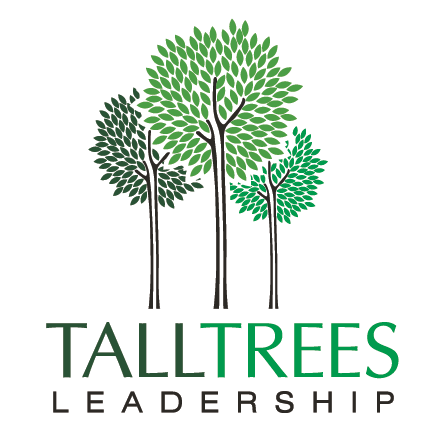
The Role of Healthcare Leadership in Truth & Reconciliation
Truth & Reconciliation Day is an important time of reflection for settler Canadians across all industries.
As healthcare professionals, we hold a unique position in the process of reconciliation. The healthcare system in Canada has historically been used as a tool to further the oppression of Indigenous individuals and communities. And while progress has been made towards a more equitable, culturally sensitive system, there is still a long way to go.
If you’re a healthcare leader, you have the power to further reconciliation efforts and make a difference in a historically flawed system. In this blog, we offer some starting points for you to consider during this time of reflection and—more importantly—in your daily leadership practices moving forward.
What are the TRC Calls to Action for healthcare?
The 2015 Truth & Reconciliation Commission of Canada (TRC) report outlines 94 calls to action in order to redress the legacy of residential schools and advance the process of Canadian reconciliation.
These calls to action are a great resource for settler Canadians and organizations who find themselves asking “what can I do to help?”
You can access the full list of calls to actions here.
The document contains seven calls to action (18-24) under the category of health:
18. We call upon the federal, provincial, territorial, and Aboriginal governments to acknowledge that the current state of Aboriginal health in Canada is a direct result of previous Canadian government policies, including residential schools, and to recognize and implement the health-care rights of Aboriginal people as identified in international law, constitutional law, and under the Treaties.
19. We call upon the federal government, in consultation with Aboriginal peoples, to establish measurable goals to identify and close the gaps in health outcomes Calls to Action between Aboriginal and non-Aboriginal communities, and to publish annual progress reports and assess long term trends. Such efforts would focus on indicators such as: infant mortality, maternal health, suicide, mental health, addictions, life expectancy, birth rates, infant and child health issues, chronic diseases, illness and injury incidence, and the availability of appropriate health services.
20. In order to address the jurisdictional disputes concerning Aboriginal people who do not reside on reserves, we call upon the federal government to recognize, respect, and address the distinct health needs of the Métis, Inuit, and off-reserve Aboriginal peoples.
21. We call upon the federal government to provide sustainable funding for existing and new Aboriginal healing centres to address the physical, mental, emotional, and spiritual harms caused by residential schools, and to ensure that the funding of healing centres in Nunavut and the Northwest Territories is a priority.
22. We call upon those who can effect change within the Canadian health-care system to recognize the value of Aboriginal healing practices and use them in the treatment of Aboriginal patients in collaboration with Aboriginal healers and Elders where requested by Aboriginal patients.
23. We call upon all levels of government to:
-
Increase the number of Aboriginal professionals working in the health-care field.
-
Ensure the retention of Aboriginal healthcare providers in Aboriginal communities.
-
Provide cultural competency training for all healthcare professionals.
24. We call upon medical and nursing schools in Canada to require all students to take a course dealing with Aboriginal health issues, including the history and legacy of residential schools, the United Nations Declaration on the Rights of Indigenous Peoples, Treaties and Aboriginal rights, and Indigenous teachings and practices. This will require skills-based training in intercultural competency, conflict resolution, human rights, and anti-racism.
What the TRC Calls to Action mean for healthcare leaders
No matter your role, you have the ability to move forward on one or more of these calls to action. Make time to educate yourself on Indigenous healing practices across Canada and especially in the area where you work. Learn about the history of the Canadian government’s mistreatment of Indigenous people and how the healthcare system specifically was implicated in this chronic mistreatment.
If you’re in a position of leadership—whether you have the ability to effect change within a small team, an entire organization or even healthcare policies—reflect on how you can take actions that will move healthcare towards reconciliation. Even if those movements are small.
Practicing cultural safety
Another framework healthcare leaders can look to in their reconciliation work is that of cultural safety.
Cultural safety, a concept that has somewhat recently been gaining recognition in the Canadian healthcare system, differs from more common concepts such as cultural sensitivity and cultural competency.
Cultural sensitivity refers to an awareness and recognition of the differences between cultures and, crucially, that these differences must be taken into account during interactions with patients/clients as well as with coworkers and colleagues.
Cultural competency refers to equipping practitioners with the skills and knowledge they need to foster respectful and productive relationships with patients/clients and coworkers and colleagues from different cultural backgrounds.
Cultural safety is a much more fulsome approach to creating inclusive and equitable healthcare spaces. It means not only considering how cultural differences may impact a person’s experience in the healthcare system, but also being tuned into how power dynamics, privilege and specific circumstances can shape our interactions with patients/clients.
Fostering cultural safety in your organization is an ongoing commitment, and learning and unlearning behaviours and beliefs takes time. If you’re interested in finding out more about practicing cultural safety in healthcare, please see the following resources:
- HealthCareCan’s cultural safety resource page
- The National Collaborating Centre for Indigenous Health’s Cultural Safety Collection
- Canadian Institute for Health Information: Measuring Cultural Safety in Healthcare Systems
Moving forward, together
As we often tell our coaching clients, you don’t have to have all the answers yourself. Lean on your team, the community and the many organizations dedicated to the work of reconciliation to determine the best way forward.
Take time to reflect on your day-to-day work—your interactions with patients/clients, your hiring practices, how you speak to your team members—and think about how you could make a small change that would foster cultural safety or honour the TRC’s calls to actions.
These small actions, in combination with larger, long-term efforts, are what will move the teams, organizations and systems forward on their journey to reconciliation
